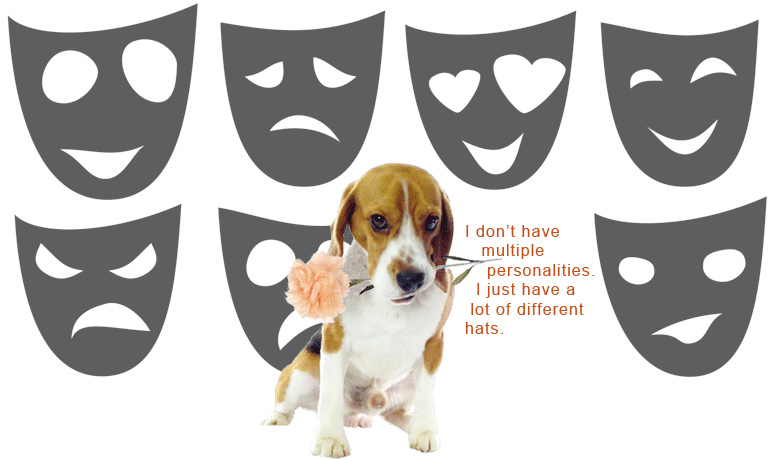Business Personality Disorder (BPD) is characterized by at least two distinct identities or dissociated personality states that show up in a company’s behavior.
BPD emerges when unrelated teams work independently in the areas of (1.) Advertising (2.) Web Presence (3.) Sales Training.
If a person encounters your ads, then visits your website, then comes to your place of business, will they feel they have encountered a single personality three times, or three personalities once?
Advertising rarely makes the sale. It merely engages the customer in the early stages of a conversation. If the reader/listener/viewer of your ad has purchased from you in the past and had a good experience, it’s possible the ad will cause him or her to make immediate contact with your business.
But customers who are less familiar with you will hope to extend the conversation and learn more about you by visiting your website. And they will expect to encounter the same personality they met in your ads.
Will that happen?
Or will they encounter an entirely different personality crafted by your website team?
Does your website continue the conversation begun by your advertising, or does it stand alone, as though that conversation never took place?
To what degree is your website disconnected from your advertising? That will be the degree of disconnection experienced by your customer.
If by some miracle, the personality, tone and style of your website agrees with the personality, tone and style of your advertising, your biggest problem remains. Will your people continue the conversation that was begun in your ads and continued on your website? Or will they introduce an entirely different company than the one your customer was hoping to meet?
Relational Marketing depends on Integrated Messaging.
Integrated Messaging begins with
We Believe
(Statements that capture the Personality and Promises, Processes and Benefits of your company.)
Personality makes the customer feel they know you.
Promises make the customer feel secure.
Processes give credibility to your Promises.
Benefits are what the customer is hoping to experience.
(Your Origin Story is essentially the backstory of We Believe. We spoke of this in last week’s MondayMorningMemo.)
Brandable Chunks
(memorable identifiers and phrases extracted from your We Believe statements.)
Deliverables
(Advertising, web copy, content marketing, and signature phrases used by your people, all built from the same list of Brandable Chunks) These deliverables include 5, 10, 15, 30 and 60-second radio ads, billboard copy, email subject lines and body copy, digital marketing text, memorable identifiers for truck and van wraps, store signage, etc.)
You’d like to see some examples, I know.
You’ll find them in Chapter Ten of Be Like Amazon: Even a Lemonade Stand Can Do It. You can read that chapter by following the hyperlink in the previous sentence, or you can wait for the book to be published in a couple of months.
The audiobook is in production right now. It’s going to be the first ever of its kind; a business book presented as dialogue.
Roy H. Williams

Todd Lemense built a successful business with 80 employees and could do no wrong. At least that’s what he thought. Today Todd says his success-fueled pride got the better of him. Rising from the ashes of his crashed-and-burned business, Todd is helping others escape the consequences of their own flaming ego trips. Listen in as Todd tries to tame the white-hot ego of our own roving reporter Rotbart. 🙂 It’s always crazy at Monday Morning Radio.com
